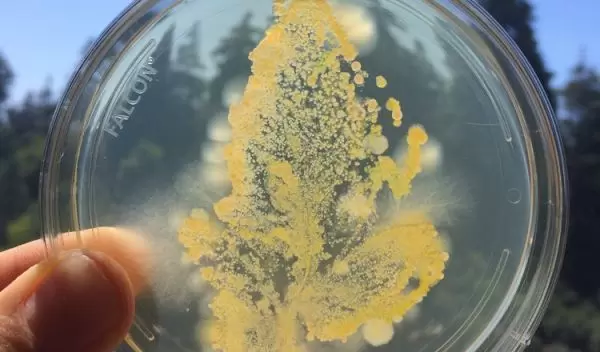
How do you cultivate a healthy plant microbiome?
Scientists are homing in on what a healthy human microbiome looks like, mapping the normal bacteria that live in and on a human body. But what about a healthy plant microbiome?
Is there even such a thing as a healthy plant microbiome in today's agricultural fields, with acres of identical plants assaulted by pesticides and herbicides and fertilizers?
A new NSF-funded study by University of California, Berkeley microbial ecologists used experimental evolution to help identify the core microbiome of commercial tomatoes. The researchers selected for those microbial taxa that best survived on the plants, then showed that these "domesticated" microbial communities can fend off random microbes that land on the plants. In other words, the selected communities look like a stable, healthy plant microbiome, akin to what a robust tomato plant might pass to its offspring.
The results are good news for growers who hope that manipulating the plant microbiome, perhaps with probiotics, will make for healthier fields that need less fertilizer and less or no pesticides to produce good yields.
"The implications of this work are not just about probiotics, but also about guiding agricultural practices," said study leader Britt Koskella. "When planting fields, we should be thinking about how what we do — whether it is age structuring of crops or monocropping versus crop rotations, or what is in the soil and what is living nearby — can impact the acquisition and health of the plant microbiome."
Farmers should be manipulating the growing conditions in such a way that microbial transmission is more akin to what would happen naturally, Koskella believes.
Koskella, lead author Norma Morella of the Fred Hutchinson Cancer Research Center in Seattle, and their colleagues reported the findings in the journal Proceedings of the National Academy of Sciences.
"We have just begun to unlock the ways in which evolution shapes microbiomes," says Francisco Moore, a program director in NSF's Division of Environmental Biology. "This study demonstrates the practical utility we will gain as our understanding grows."
